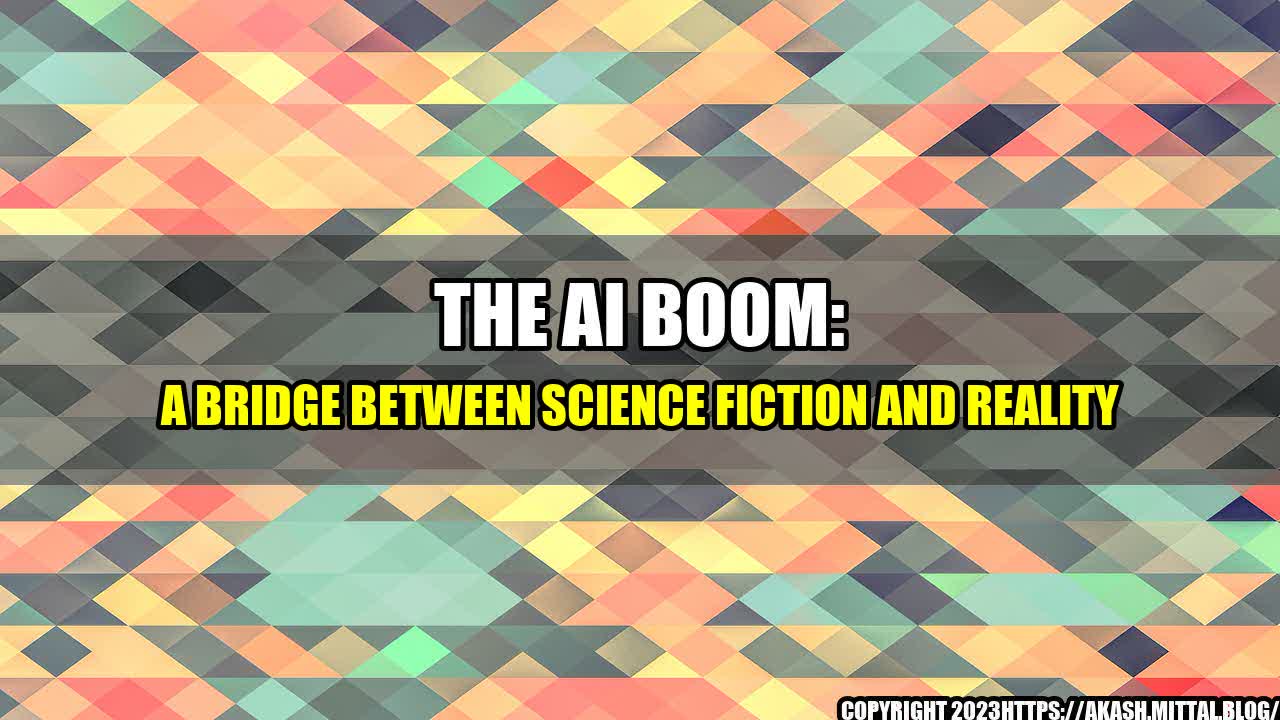A Journey To The Future
It was a cold winter morning when John received a call from his boss. He had been working as a customer support representative for a leading telecom company for over three years. However, today his life was about to change in ways he never imagined.
"John, we've decided to implement an AI-powered chatbot to handle customer queries. Your team will be responsible for training it, and you'll be the team leader," said his boss. John was elated. He had heard of AI and how it was changing the course of businesses. It was the dawn of a new era, and he was about to be part of it.
Fast forward five years, and John is now the Chief AI Officer at the same company. His team has developed an advanced chatbot that can handle complex queries with ease. The company's revenue has increased by 50%, and customers are more satisfied than ever before.
John's story is just one of many that highlight the potential of AI. With its unique ability to learn, adapt and improve over time, AI is poised to transform the world as we know it.
The Potential of AI
AI is already being used in a variety of industries, including healthcare, finance, transportation, and manufacturing. Its potential for innovation seems limitless and has caught the attention of many leading tech companies, including Goldman Sachs.
In a recent report, Goldman Sachs predicted that AI would be the next big tech boom, estimating that its market size would reach $100 billion by 2025. The report highlighted that AI would have a significant impact on job creation and would drive widespread economic growth.
AI has the potential to automate routine tasks, allowing employees to focus on more complex and strategic work, thereby increasing productivity. In healthcare, AI can assist doctors in diagnosing diseases accurately and quickly, potentially saving countless lives. In finance, AI can analyze vast amounts of data and identify patterns, helping investors make better-informed decisions.
AI also has the potential to create new job opportunities. As companies adopt AI, there will be a significant demand for individuals with skills in areas such as data analysis, software development, and machine learning. These new jobs will drive economic growth and spur innovation.
AI Use-Cases
AI has already revolutionized several industries and will continue to do so in the near future. Here are some of the popular use-cases of AI:
Healthcare
AI is helping doctors diagnose diseases accurately and quickly. For instance, an AI-powered software can analyze MRI scans and identify anomalies that might be missed by humans. Moreover, AI is being used to develop personalized treatment plans for patients based on their genetic makeup and medical history.
Finance
AI is being used in finance to analyze vast amounts of data and identify trends. This helps investors make better-informed decisions and manage risk more effectively. For example, an AI-powered algorithm can scan financial news articles and identify market trends, allowing traders to make quick decisions.
Manufacturing
AI is being used to optimize manufacturing processes and improve production efficiency. An AI-powered system can analyze data from sensors and identify patterns, allowing manufacturers to predict and prevent equipment failures before they occur. This helps them save money on maintenance costs and avoid downtime.
Retail
AI is being used in retail to personalize the shopping experience for customers. An AI-powered algorithm can analyze a customer's purchase history and recommend products based on their preferences. Moreover, AI is being used to optimize inventory management and supply chain logistics, reducing costs and improving efficiency.
AI Implications
While the potential of AI is vast, it also has some implications that need to be addressed. Here are some of the possible implications of AI:
Job Displacement
As companies adopt AI, there will be a significant displacement of jobs. Routine tasks will be automated, which will lead to the loss of jobs currently performed by humans. However, new jobs will be created that require skills in areas such as machine learning and data analysis.
Data Privacy
AI relies on vast amounts of data to learn and improve. This data is often personal and must be handled responsibly. Companies must ensure that they are transparent in their data collection practices and protect their customer's data from hackers and cybercriminals.
Ethical Concerns
AI decisions are often made based on complex algorithms, and sometimes, these decisions are biased or unfair. Therefore, companies must ensure that their AI system is free from any bias and that their decisions are ethical and fair.
Cybersecurity Threats
As AI becomes more prevalent in society, it also becomes a target for cybercriminals. Companies must ensure that their AI systems are secure and free from vulnerabilities that could be exploited by hackers.

Curated by Team Akash.Mittal.Blog
Share on Twitter Share on LinkedIn